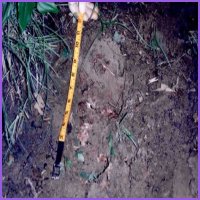Hurricane Gabrielle: Where to Find Urgent Emergency Resources Now
This article highlights the essential hurricane gabrielle emergency resources available to those affected by the storm. From securing shelter and accessing food and water to understanding financial aid and medical support, the article provides a comprehensive guide. It emphasizes the importance of preparedness, including having emergency supplies, knowing how to contact authorities, and utilizing available resources to ensure safety and well-being during and after the hurricane.
As Hurricane Gabrielle bears down, the need for immediate access to vital support is more critical than ever. This piece is crafted to guide you through the maze of available hurricane gabrielle emergency resources, ensuring you know where to turn for help, how to access it, and what to expect. We'll navigate the complexities of aid, focusing on the practical steps individuals and communities can take to weather the storm.
The situation is fluid, and information changes rapidly. Our goal is to equip you with the most up-to-date details, empowering you to make informed decisions and safeguard yourself and your loved ones. We'll delve into the specifics of shelters, financial assistance, and vital supplies, ensuring you have the knowledge to navigate this challenging time.
Pinpointing Safe Havens: Immediate Shelter Options Unveiled
One of the most pressing concerns during a hurricane is finding safe shelter. Knowing where to go, especially when evacuation orders are in place, is paramount. Official shelters, often managed by local authorities and organizations like the Red Cross, are the primary destinations. These shelters offer protection from the elements and provide basic necessities.
Before heading to a shelter, it's essential to pack a "go-bag." This should include essential medications, personal identification, important documents (like insurance policies), non-perishable food, water, and any necessary personal items. Check with local authorities for the locations of open shelters. These locations are usually announced via local news channels, emergency alerts, and official government websites. Be prepared for shelter conditions; they are often crowded, and amenities may be limited.
Aid on the Horizon: Understanding Government and NGO Support Systems
Beyond immediate shelter, a comprehensive network of support is activated during a hurricane. Federal and state governments, along with non-governmental organizations (NGOs) like the Salvation Army and World Vision, deploy significant resources. These resources include financial assistance, food and water distribution, and medical aid. The Federal Emergency Management Agency (FEMA) plays a crucial role in coordinating these efforts.
FEMA offers individual assistance programs that can help with temporary housing, home repairs, and other essential needs. Applications for FEMA assistance can be made online through their website or by calling their helpline. Keep a close eye on official announcements for information on how to apply for these programs, as deadlines and eligibility criteria may apply. Local NGOs often provide immediate relief, such as food and water distribution, and can be a valuable source of information and support.
The Food and Water Imperative: Securing Essential Supplies
Access to food and clean water is crucial during and after a hurricane. Disruptions to supply chains and power outages can quickly lead to shortages. Planning ahead is key. Ideally, you should have a supply of non-perishable food and bottled water on hand before a hurricane threatens. A good rule of thumb is to have at least three days' worth of supplies per person.
When a hurricane hits, local authorities and aid organizations often set up distribution points for food and water. These points are usually announced through local media and emergency alerts. Be prepared for potential lines and delays. Conserve water during the storm and use it wisely. If you have a well, be aware that you may lose access to water if the power goes out. Consider having a backup water source or water purification tablets.
Navigating the Maze of Financial Assistance: Grants, Loans, and Insurance
The financial impact of a hurricane can be devastating. Beyond immediate needs like food and shelter, individuals and businesses often face significant costs for repairs, medical care, and lost income. Several forms of financial assistance are typically available to help those affected by the storm.
FEMA offers various financial assistance programs, including grants for home repairs, temporary housing, and other disaster-related expenses. The Small Business Administration (SBA) provides low-interest disaster loans to businesses and homeowners. Additionally, insurance policies, such as homeowner's and flood insurance, can provide crucial financial support. It's crucial to review your insurance policies before a hurricane and understand your coverage. Filing claims promptly and providing the necessary documentation is essential to receiving timely financial assistance. Remember, the process can be complex, so seek help from insurance agents, financial advisors, and community organizations if needed.
Medical Matters: Securing Healthcare During a Crisis
Hurricanes can present significant challenges to healthcare access. Power outages can disrupt hospitals and clinics, and transportation can become difficult. It's essential to have a plan for securing medical care during and after a storm.
If you have any chronic medical conditions, ensure you have an adequate supply of medications. Keep your prescriptions and medical records in a safe and easily accessible place. Know the location of the nearest hospitals and urgent care facilities. Be aware that these facilities may be overwhelmed during a hurricane. Local authorities often set up emergency medical stations to provide basic care. Emergency services like ambulances may be stretched thin, so be prepared to transport yourself or seek help from neighbors if possible. Consider registering with your local emergency management agency if you have specific medical needs, as this can help them to plan for your care during a disaster.
Staying Connected: Communication Strategies in a Disrupted World
Communication is critical during a hurricane, both for receiving vital information and for contacting family and friends. Power outages and damage to communication infrastructure can severely disrupt communication channels. Having a plan in place to stay connected is essential.
Charge your cell phones and any other electronic devices before the storm hits. Consider purchasing a portable charger or a hand-crank radio. Local radio stations often broadcast vital information during and after a hurricane. Social media can be a valuable source of information, but be cautious and verify information before sharing it. Text messaging often works when phone calls do not, so use texting to communicate with loved ones. Establish a communication plan with your family and identify a designated meeting point in case you get separated. Consider using a satellite phone or a two-way radio if you have one. Be aware that communication networks may be overloaded, so be patient and persistent.
Hurricane Gabrielle emergency resources are designed to help those impacted by the storm. It's a challenging situation, but with foresight and preparedness, you can navigate the path to safety and recovery.
Related Posts

Mia Smith
Columnist
Mia Smith is a perceptive Columnist, known for her ability to provide incisive and original perspectives on contemporary society and culture. With years of experience, she crafts engaging content that challenges conventional thinking and sparks vibrant debate among a diverse readership, simplifying complex issues into easily digestible commentary.







